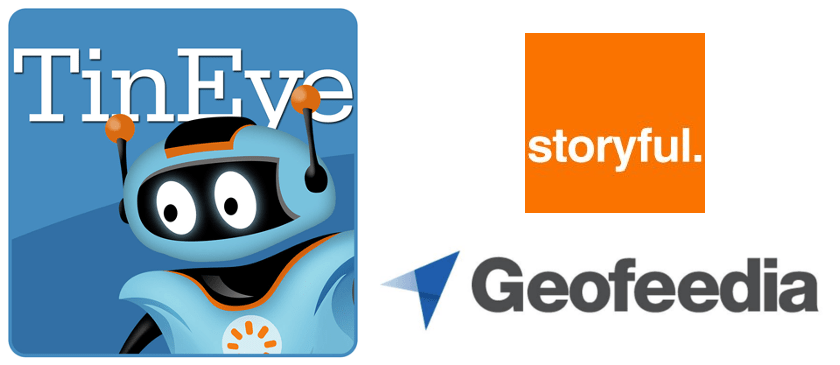Turmoil at The Washington Post and AI Licensing Deals: June 2024 Media News Recap
Welcome to Media Insider, PR Newswire’s roundup of media news stories from the month.

Photo by Madison Inouye on Pexels
June was a busy month for the media industry, from a nearly nonstop wave of bad news for The Washington Post to new AI licensing deals for publishers, updates in local news and more.
In this post, we recap some of the big trends and highlight a few of the major media industry headlines that dominated the conversation last month.
Sally Buzbee Exits Washington Post
To kick off the month, the media world was rocked by the shocking announcement that the executive editor of The Washington Post, Sally Buzbee, would be stepping down immediately. Buzbee led the newsroom for three years, during which the newsroom won six Pulitzer Prizes and added 41 positions but also saw a drop in readership and the closing of its Sunday magazine. The Post’s new CEO, Will Lewis, added to the announcement by unveiling more of his plan to revamp the newspaper, including new subscription products and a “third newsroom” for “service and social-media journalism.” (New York Times)
But Buzbee’s exit was just the beginning of several weeks of damaging news for The Post, including reports that Lewis tried to kill stories that mentioned him in relation to a British phone-hacking scandal (NPR) and used stolen records in newspaper articles (New York Times). Then, Robert Winnett, the British editor chosen to take over the newsroom, announced he would not be taking the job. (Poynter)
The Post’s billionaire owner, Jeff Bezos, eventually chimed in, saying “the journalistic standards and ethics at The Post will not change,” but adding “It can’t be business as usual” as the paper struggles financially. (CNN)
That wasn’t the only big media move in June:
- Ginger Thompson was named managing editor at ProPublica. (ProPublica)
- Tracy Connor, editor-in-chief of The Daily Beast, left just months after a leadership shakeup. Hugh Dougherty, most recently the deputy editor of the New York Post for news features, filled the role. (TheWrap)
- Vice Media co-founder Shane Smith is back at the outlet as a correspondent and podcast host. (Wall Street Journal)
The pros and cons of publishers’ AI licensing deals
Sara Guaglione, Digiday media reporter, asks “Are you even a large digital publisher if you haven’t signed a deal with OpenAI?” News of content licensing deals with the tech giant continued to roll out in recent weeks, with outlets from Vox to The Atlantic, Dotdash Meredith and News Corp joining the trend. The deals largely consist of the publishers being compensated for allowing OpenAI to use their content to train its large language models.
While getting paid for their content is the obvious pro of these deals, publishers can also benefit from enhanced analytics and a potential for increased traffic from AI-generated chatbot responses. But the deals can also lack transparency and since it’s a new development, publishers might be being underpaid for their content as they decide how much their content is worth.
On the other hand, some publishers like The New York Times and a group of newspapers owned by Alden Global Capital are going in the opposite direction and are suing the tech company and Microsoft for copyright infringement. In June, it was announced that OpenAI and Microsoft are moving to dismiss some of these charges, saying “Microsoft and OpenAI’s tools neither exploit the protected expression in the plaintiffs’ digital content nor replace it…”
In other AI news:
- A new multiyear deal gives OpenAI access to Time’s archives from the last 101 years to train its tech and use in responses to user queries. (Axios)
- OpenAI is working with the World Association of News Publishers on an accelerator program to drive AI adoption in newsrooms across Europe, Asia Pacific, Latin America and South Asia. (MediaPost)
- A new report from the Reuters Institute found that many respondents think the use of generative AI will make news and journalism worse. (Reuters Institute)
- The Insider Union wrote a letter to Business Insider management with concerns that ChatGPT’s summaries of Insider content lack credit and direct links to the original stories. “We are…deeply worried that despite this partnership, OpenAI may be downplaying rather than elevating our works,” reads the letter. (NiemanLab)
- AI news summary app Particle announced that it closed on $10.9 million in Series A funding and has partnered with Reuters to collaborate on new business models. (TechCrunch)
How Americans Get News on TikTok, X, Facebook and Instagram
Half of U.S. adults say they get news at least sometimes from social media, but not all social media sites are used the same. Although people see news on all four platforms included in its survey (X, Facebook, Instagram and TikTok), Pew Research Center found that most users of X, formerly Twitter, say that keeping up with the news is a major or minor reason for using the app – making it the exception among the major social media platforms.
X also stands alone in terms of the sources of news that users see — news outlets or journalists are reported as the most common news source on X. On Facebook and Instagram, most users say they get news from friends, family and acquaintances, while on TikTok, it comes from influencers or other people the user doesn’t know.
The research also examined the perceived accuracy of news seen on social media sites. News consumers on X (37%) and Facebook (33%) are the most likely to say they often see news that seems inaccurate. There are also party divides, with 42% of Democrats/those who lean Democratic on X saying they extremely or fairly often see inaccurate news there. On the flip side, 38% of Republican Facebook news consumers say they often see inaccurate news. (Pew Research Center)
Social media had a big news month, including:
- X updated its rules to formally allow users to post adult and graphic content on the platform — with a few caveats. (TechCrunch)
- Despite his efforts to ban it, former President Donald Trump joined TikTok. (Mashable)
- Facebook revealed its Gen Z user numbers and plans to win over younger users. (Axios)
- LinkedIn’s Wire Program, which enables media companies to sell 3- to 15-second-long pre-roll ads on their editorial video, launched in beta. (Digiday)
AP launches nonprofit group to raise $100M for local news
The Associated Press announced its plans to launch an independent sister organization, The AP Fund for Journalism, to raise at least $100 million to expand state and local news. Since the AP is a not-for-profit organization, it can’t raise philanthropic funds for its local news efforts. This new charitable 501(c)3 organization will allow it to do just that.
The funds will be allocated by the organization’s independent directors and could be used for things like localizing big datasets, AI training for local newsrooms and more. “We felt that this is the ecosystem the AP has supported since its founding and that it’s a space that we need to step in and help shore up,” CEO Daisy Veerasingham said. (Axios)
In other local-news news from June:
- The California state Senate passed legislation imposing a new tax on some of the biggest tech companies in the world to help the news industry. (Los Angeles Times)
- Ahead of the presidential election, new data from NewsGuard shows that the number of partisan-backed outlets designed to look like impartial news outlets (known as “pink slime” sites) has officially surpassed the number of real, local daily newspapers in the U.S. (Axios)
- Nonprofit news site Cityside has launched a new edition in Richmond, California, to serve the city’s 116,000 residents. (NiemanLab)
And in case you missed it:
- The Knight Foundation debuted its election hub with tools, resources and services to help newsrooms across the country provide robust election coverage.
- G/O Media sold another title. This time, it offloaded tech news website Gizmodo to Keleops Media, a European digital media company.
- New research found that almost four out of 10 journalists covering the climate crisis and environment issues have been threatened as a result of their work.
- Evan Gershkovich, an American journalist arrested on espionage charges in Russia, officially went on trial.
Follow @BeyondBylines on Twitter for more media news updates and stay tuned for our next monthly recap!
Subscribe to Beyond Bylines to get media trends, journalist interviews, blogger profiles, and more sent right to your inbox.
Rocky Parker is the Manager of Audience and Journalist Engagement at Cision PR Newswire. She's been with the company since 2010 and has worked with journalists and bloggers as well as PR and comms professionals. Outside of work, she can be found trying a new recipe, binging a new show, or cuddling with her pitbull, Hudson.




